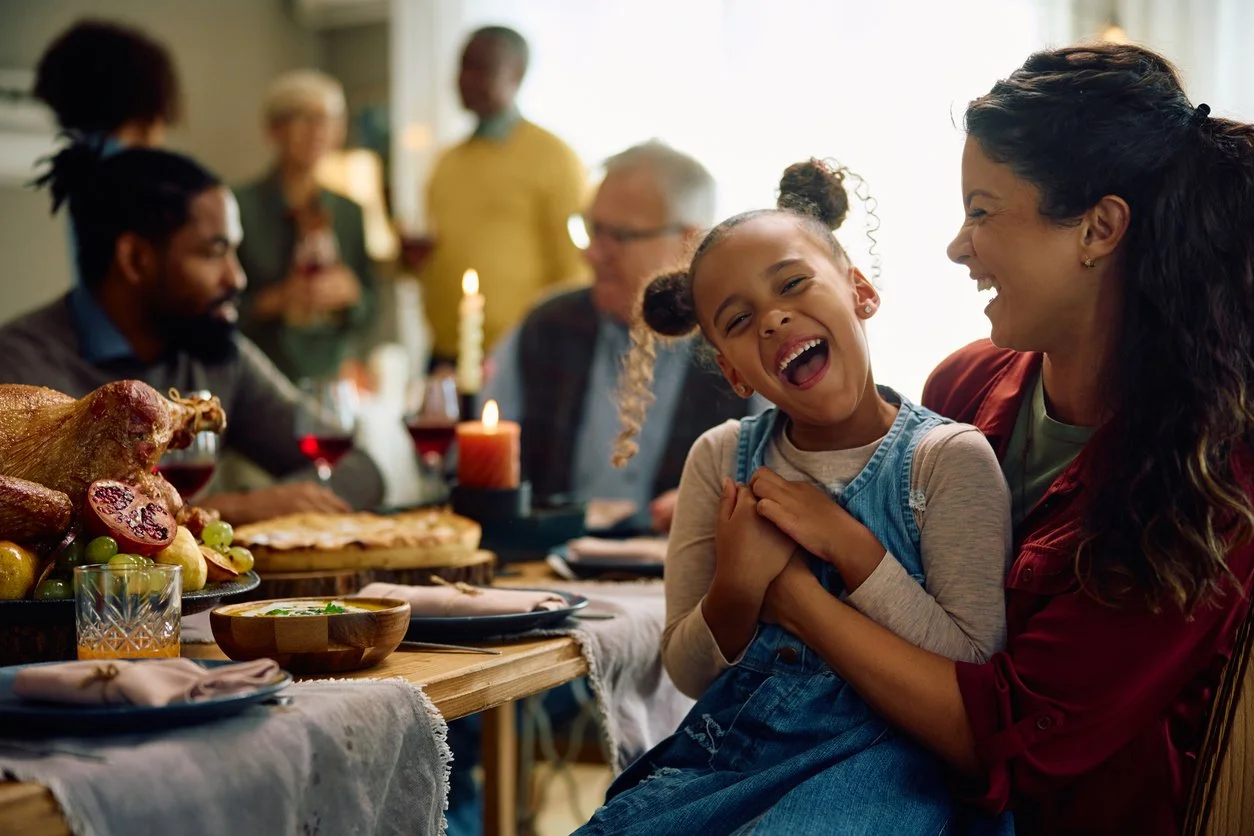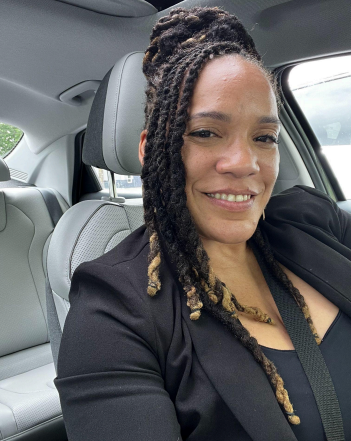The Gift of Difference
Here we are in November, hurtling into the holiday season. For many reasons, this season brings a multitude of emotions and relationships, in its most ideal form, a sense of togetherness. Yet multiracial families raising Black children, the season can surface particular complexities. The experience of othering, of being marked as different by the outside world, is not an abstract concept but a lived reality. In our simple society, there's a pervasive practice of assessing value based on difference: if I believe differently than you, or light my candles on a different day, somehow one must be deemed "most" important. This is unfortunate, yet easily remedied.
For white families raising children who identify as Black, it is of utmost importance to foster self-love in your child. I believe it is helpful to do so in an introduction and practice of diasporic appreciation for expression. Expression of love, togetherness, family, triumph, and loss. To be Black in this world is to be of the world. This is a pride sometimes lost in the here and now. However, I encourage you to always remember and foster in your child knowledge of a larger connectedness throughout the world. This isn’t something you must perfect yourself, but something to witness and encourage through exposure, knowledge, and a total absence of judgment about what is "good" or "better."
Consider art, for example. True art in its purest form is simply free creation, the absence of fear. To create freely is to express without the constraint of perceived limits. If we engage only the left side of our brain and never access the right, we become stifled. Black children need to know that celebrations this season reflect diverse global stories of struggle, renewal, and joy that connect all of humanity. Whether Diwali, Hanukkah, Christmas, Eid, or Kwanzaa. Each represents a narrative of perseverance and hope. They may be religious in form, and that's okay. You don't have to join a religion to appreciate its story. Understanding how each narrative connects humankind; that's the story to be told.
You don't have to practice a tradition to appreciate what it brings to your community.The holiday season need not be reduced to only your family's experience. Additionally, engagement doesn't require wealth or extensive resources. It can be as simple as reading a library book about a celebration together, watching a documentary, or having a conversation with neighbors. Explaining each element of a holiday without judgment: the good, the bad, and the controversial allows your child to appreciate diversity, possibility, creativity, and storytelling. This includes difficult truths: discussing “Thanksgiving” alongside the National Day of Mourning honors the complexity of American history and teaches that honest storytelling matters more than comfortable mythology.
Your child's critical thinking will flourish when asking questions and seeing differences as normal and expected, fostering ease and openness. Practice whatever traditions your family holds dear, of course. However, when others are celebrating, learn a little about it. If you have the means, discover where celebrations are being held to donate, contribute, or simply appreciate. Share stories with enthusiasm, respect, joy, and curiosity.
Your role is to ensure your child develops both strong individual identity and deep connection to broader humanity. We are different, and we are one. That's the season's lesson.
Ayisha Elliott is a mother, grandmother, and relational parenting guide who understands the beautiful complexity of raising Black children in today's world. As a mother of three and grandmother of five—currently raising three of her grandchildren—she brings both lived experience and 25 years of professional expertise in relationship-centered approaches to the everyday realities of parenting across generations. From navigating school systems and cultural identity to managing sibling dynamics and travel logistics with children, Ayisha has learned that the same principles that transform organizations can revolutionize family life. As the content producer of the podcast Black Girl From Eugene, award-winning columnist, and sought-after speaker, Ayisha creates authentic conversations about what it means to raise confident, grounded children while honoring their heritage and preparing them for the world as it is. Her unique perspective comes from successfully balancing entrepreneurship with hands-on parenting, traveling internationally with the children she's raising, and understanding that every parenting decision carries both personal and cultural weight. Through her writing and speaking, Ayisha offers practical wisdom, honest reflection, and relationship-building strategies that help Black families thrive—not just survive—in complex times.


